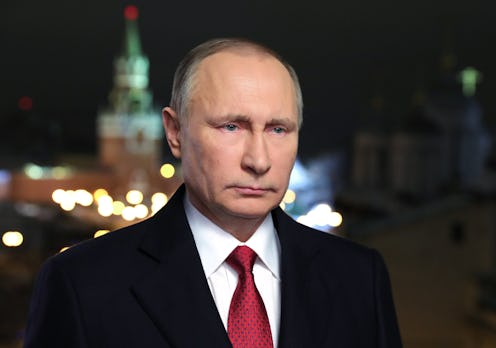News
How To Read The Report On Russian Hacking

On Friday, American intelligence officials released their highly-anticipated report on the Russian government's attempts to hack the U.S. election. The report, prepared jointly by the FBI, CIA, and NSA, concluded that Russian President Vladimir Putin personally ordered the hacks in an attempt to secure the election of Donald Trump to the presidency. No huge surprise there. You can read the intelligence report on Russian hacking here, courtesy of the Director of National Intelligence.
"We assess Russian President Vladimir Putin ordered an influence campaign in 2016 aimed at the US presidential election," the report concluded. "Russia’s goals were to undermine public faith in the US democratic process, denigrate Secretary Clinton, and harm her electability and potential presidency. We further assess Putin and the Russian Government developed a clear preference for President-elect Trump. We have high confidence in these judgments."
This is very significant, but again, not all that surprising or revelatory. The Obama administration announced way back in October that the Russian government had orchestrated the theft and release of hacked Democratic National Committee emails. The administration accused Russia of doing this in an attempt to influence the election; this necessarily meant that Russia was attempting to propel Donald Trump into the White House, given that the hack exclusively targeted Democrats.
And indeed, that appears to be the case. Friday's report concluded that Putin "aspired to help President-elect Trump’s election chances when possible by discrediting Secretary Clinton and publicly contrasting her unfavorably to him." It added that the FBI, CIA, and NSA were all in agreement about this.
But why did Putin prefer Trump to Clinton? There are some obvious reasons: Trump was (and is) expected to have a massively destabilizing effect on the United States, and the U.S. is Russia's biggest geopolitical rival by far. Why wouldn't Putin want to throw his country's greatest foe into disarray? Just as importantly, Trump himself was openly pro-Putin during the campaign, and indeed, support for the Russian president has been one of the few constants throughout Trump's brief career in politics.
Friday's intelligence assessment got a bit more detailed on why Putin preferred Trump in the White House, saying that Moscow saw the election of Trump as "a way to achieve an international counterterrorism coalition against the Islamic State in Iraq and the Levant (ISIL)." Trump has indeed suggested that he'll cooperate with Putin in an attempt to fight the Islamic State. This is a flawed plan, in large part because defeating ISIS does not appear to be a priority of the Russian government.
At the end of the day, though, the report left the biggest question unanswered: Did Putin's interference actually affect the outcome of the election?
"We did not make an assessment of the impact that Russian activities had on the outcome of the 2016 election," the report said. "The US Intelligence Community is charged with monitoring and assessing the intentions, capabilities, and actions of foreign actors; it does not analyze US political processes or US public opinion."
In truth, it's always impossible to determine with certainty what did or didn't swing an election. There are simply too many factors that produce nebulous and immeasurable effects to draw any conclusion one way or the other. Still, the fact that the president of Russia launched an operation to propel the current U.S. president-elect into the White House is, at the very least, disturbing and significant.